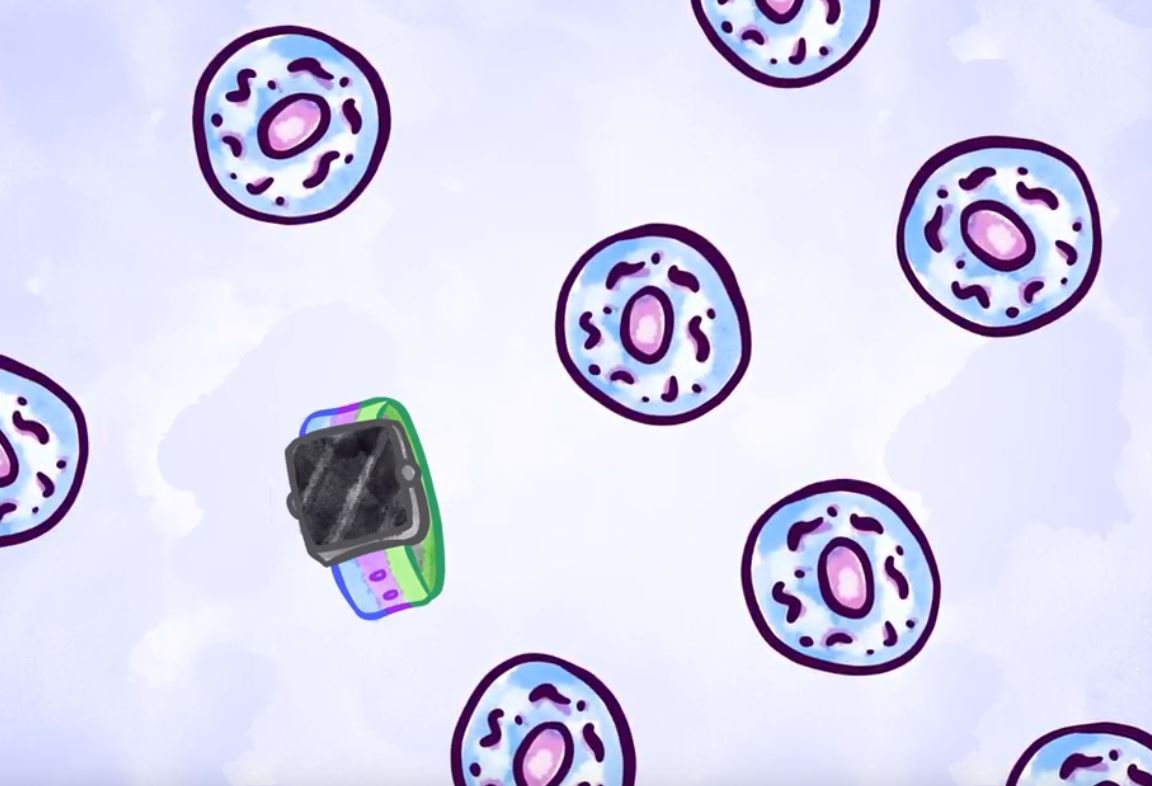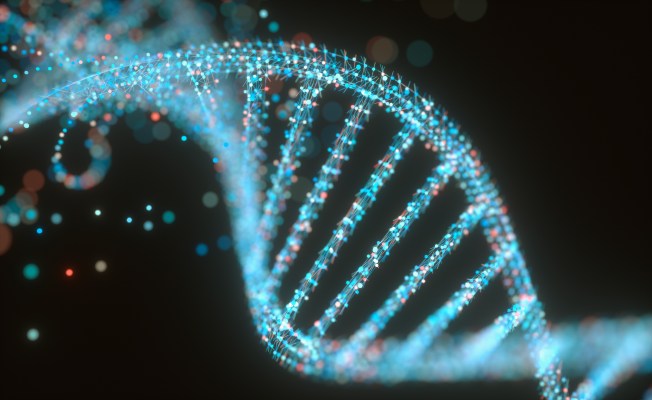A new Seattle biotech organization will be funded to the tune of $75 million to research “DNA typewriters,” self-monitoring cells that could upend our understanding of biology. The collaboration between the University of Washington, the Chan-Zuckerberg Initiative and the Allen Institute is already underway.
Called the Seattle Hub for Synthetic Biology, the joint initiative will combine the expertise of the two well-funded research outfits with that of UW Medicine, working in what UW’s Jay Shendure, scientific lead for the project, called “a new model of collaboration.”
The Hub (not to be confused with the HUB, or Husky Union Building, on UW’s campus) aims to strike a balance between a disinterested intellectual academic approach and a development-focused commercial approach. The $75 million will fund the organization for five years, with the option to renew then.
“There’s no strict roadmap, and we’re not claiming we’re going to create a billion-dollar company at the end of this,” Shendure told me in an interview. “What we’re endeavoring to do is by no means guaranteed to succeed — and it wouldn’t be as exciting if it was. But we see a plausible path, and I hope at the end of five years we’re not the only ones using this technology.”
The tech in question is conceptually, if not actually, akin to a “smartwatch for cells.” But despite the illustration, don’t picture a red blood cell wearing an Apple Watch. If anything, you should picture it journaling.

Image Credits: Seattle Hub for Synthetic Biology
“Biology happens out of sight and over time,” Shendure explained. “Think about how we measure things in biological systems in general. With microscopy or even your naked eye, you’re looking at the system, but you’re limited in what you can see. Even if we break open the tissue, we can measure the genome and the proteome, but we’re looking at a particular moment in time. If we want to look at all the things a cell experiences over time, that’s something we can’t see.”
There’s a lot of research in single-cell monitoring by various methods, but most involve either taking the cell out of the system or using something invasive, like a microelectrode piercing its walls. But cells actually have a recording mechanism built right in: DNA. Recent research has shown it’s possible to use DNA and its attendant microbiological architecture as a storage medium for arbitrary information.
“The genome is essentially a digital entity, with A, G, T, C instead of 1 and 0. That’s useful in that we can write to it in a matter very analogous to a typewriter, and we can leverage this in principle to record information over time,” Shendure said.
“In principle” is another way of saying “we haven’t done it yet,” of course, but it’s no fantasy. It just needs more work, and that’s what the Seattle Hub intends to pursue.
Right now, the technology is crude but promising, he continued. “The first version was kind of like a monkey at a typewriter, punching keys randomly. Now we can make certain keys biologically conditional. And maybe the monkey knows four letters right now, but in principle that vocabulary could be a thousand.”
There’s that “in principle” again, but the early success of the system does suggest that this is a matter of research and engineering — hard work, not hoping for a breakthrough. Even if a cell could only “type” something when a handful of conditions occur, like escalated levels of this molecule or shortages of that one, that’s potentially a transformative tool for biology in general.

An early use of the system allowed researchers to find exact lineages for individual cells, as shown here. Image Credits: Seattle Hub for Synthetic Biology
It helps that the tools being used are fundamentally about as reliable as they come, having been tested in the wild for several billion years.
“The beauty of doing it with DNA is not only do we have something to write to, but the records you write are faithfully transmitted to the next generation of cell. And the actual devices, sensors, writers, all the components we need for our system can also be reproduced in the DNA, and the cell will build them for us,” said Shendure.
It’s also just generally a great test case for a multi-institution, multi-discipline crossover project. The Allen group of research organizations, UW and many projects and organizations backed by CZI are all working on different aspects of the same general problem: better insight into biology using digital tools like AI and large-scale data and computation.
The scientists and engineers in each are already peppering each others’ offices in Seattle, which has itself become a hub for biotech and AI, and a more formal space will be standing up soon.
Though the technology has a long way to go, there are still realistic medium-term goals. Two prominent ones are “recorder cells and recorder mice,” i.e. functioning biological systems with self-recording systems — ones we can read, which is a challenge of its own.
The output of these systems and the feedback mechanism for how they inform protein design and cellular or system-level activity are also a place where AI can shine. As one founder of a biotech startup put it, this stuff is like “an alien programming language” that language models are surprisingly good at decoding. (UW’s Baker Lab is a leading authority on protein design, incidentally, and will be working with the new hub.)
But however promising AI systems are here, “the field is very data limited,” Shendure pointed out. With microscopy and genomic data you have a lot in some ways, but a live journal written by a cell about its own activity would be a gold mine for interesting biological processes occurring in real time.
While it will likely be some time before they make any major announcements or publications, all the organizations involved agreed that this would be an open initiative, and “findings from the new institute will be shared widely with the scientific community to fuel progress in labs around the world.”
If they happen to create value at the same time — and as Shendure pointed out, if you’re plowing money and people into a promising field like that, it’s not unlikely — then they’ll consider that a bonus.
